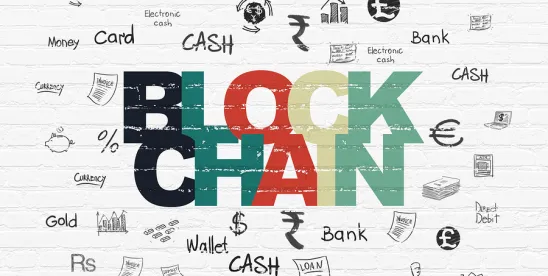The past two weeks brought some notable progress for the industry, though it still often feels like “regulation by lack of enforcement” rather than a truly proactive approach. The SEC clarified that most proof-of-work mining activities do not amount to securities transactions—a welcomed statement for miners but limited in scope. Meanwhile, Ripple announced a potential settlement that would end the SEC’s appeal, continuing a trend of non-fraud crypto cases winding down without generating long-term clarity. On Capitol Hill, the Senate’s markup of its own stablecoin act signals a significant step forward yet also highlights a lack of consensus necessary for any final bill. Finally, in a notable display of bipartisan alignment, both chambers of Congress overwhelmingly passed legislation overturning the IRS’s crypto broker reporting rules, demonstrating the possibility of constructive actions in areas where consensus can be reached.
These developments and a few other brief notes are discussed below.
SEC Clarifies That Most Proof-of-Work Mining Activities Are Not Securities Transactions: March 20, 2025
Background: The SEC’s Division of Corporation Finance released a statement clarifying its view that most proof-of-work (“PoW”) mining activities do not qualify as securities transactions under federal securities laws. The statement applies specifically to “Protocol Mining” activities involving “Covered Crypto Assets”, which are defined as crypto assets tied to the functioning of a public, permissionless PoW network. According to the release, whether through self-mining or pooled mining, miners perform the essential “work” themselves. Under the Howey test, one crucial element for a transaction to be deemed a security is that profits must flow primarily from the “managerial or entrepreneurial efforts of others.” Because PoW miners generate rewards by contributing their own computational power, the SEC concluded that these returns are not derived from someone else’s management. Thus, PoW mining generally fails this aspect of the Howey test, placing it outside the scope of federal securities laws.
Analysis: It’s important to note that releases like these do not create binding law and each set of facts can differ and may yield different legal results, which may make certain PoW mining fall outside of this safe-harbor-like guidance. Still, the statement signals that, under typical PoW mining arrangements, participants who merely contribute computational power to validate transactions and receive rewards likely do not cross into securities territory, including through pooling arrangements. This may allow more risk-averse entities to contribute compute to mining or provide services to mining pools, which only serves to strengthen network resilience and efficiency.
Ripple CEO Announces Pending Settlement With SEC: March 19, 2025
Background: Ripple has announced that the SEC will drop its appeal of the portion of the ruling against it in Ripple. This will bring an end to at least part of the case originally brought in 2020 during Jay Clayton’s term as Chairman of the SEC. This will still need to be approved at the next meeting of the commissioners, and it is unclear what this dismissal will entail. Representatives of Ripple have stated that they are evaluating what to do with their own cross-appeal relating to institutional investor sales. Still, there wouldn’t be an announcement like this if a deal was not in place, so now it is just a waiting game to see the details.
Analysis: Ripple was one of the few digital asset issuers from the ICO boom that had the resources to fully litigate against the SEC, and it has been doing so for half a decade. And litigate they did, with over 25 filings related to the “Hinman Speech” documents alone. Combined with the dismissal of the Coinbase matter and its pending appeal, there is still no binding precedent from higher courts on the applicability of the Howey test to digital assets.
Stablecoin Senate Markup Developments: March 13, 2025
Background: The Senate Banking Committee had a markup of the GENIUS Act, which is the Senate’s version of a stablecoin bill. Even before the markup and vote, there were some changes made due to bipartisan efforts to reach an agreement on how stablecoins should be registered and monitored in the U.S. The bill passed through committee on an 18-6 vote, with five Democrats (Warner-VA, Kim-NJ, Gallego-AZ, Rochester-DE and Alsobrooks-MD) voting in favor, meaning the 4 most junior Democrats on the committee (along with Warner) crossed party lines to vote in favor of the GENIUS Act.
Analysis: Senator Warren predictably tried to propose amendments that would have killed the viability of the bill (to the delight of traditional banks), but all those proposals failed. It can be expected there will be closed door work on the bill to address the concerns of Democrats who want some changes to the bill to help it receive as much bipartisan support as possible. The House is also working on its own bill, holding a hearing on stablecoins and CBDCs this week, and the Senate Banking Committee also passed a bill regarding debanking that went along party lines.
House Votes to Overturn IRS Crypto Broker Reporting Rules: March 11, 2025
Background: The House voted overwhelmingly in favor of repealing the IRS broker rule change, which was adopted in the final months of President Biden’s term, which would have made all self-custodial wallet providers, DeFi protocols and even arguably internet service providers themselves reporting entities for any digital asset transaction. The vote was 292-132 in the House and 70-28 in the Senate. It will go to the Senate again before being signed by President Trump, who has stated he intends to sign as soon as it hits his desk.
Analysis: The IRS broker rule, as finalized, was overly broad and aggressive, potentially capturing industry participants like self-hosted wallet providers, automated market makers, validators and possibly even ISPs. This might be a “played yourself” moment because some classes of entities in the digital asset space could logically be included as reporting entities under broker reporting rules. If the bill goes into law as expected, any such rule will need to come from Congress now.
Briefly Noted:
SEC Likely to Abandon Reg ATS Rule Changes for Crypto: Acting Sec Chair Mark Uyeda gave a speech saying he directed staff to kick the tires on (i.e., abandon) a proposed rule change that would expand the definition of an "exchange" in a way that might have looped in certain DeFi protocols and service providers.
Geofenced Airdrop Costs to Americans: Dragonfly released its State of Airdrops report for 2025, which shows that Americans missed out on as much as $2.6 billion in potential revenue (and the U.S. missed out on taxing that revenue) by policies that resulted in Americans being disqualified from those airdrops.
Leadership Changes at Crypto Policy Leaders: Amanda Tuminelli is taking over as CEO of industry advocacy group DeFi Education Fund. Meanwhile, Cody Carbone deserves congratulations on his recent promotion to CEO of the Digital Chamber. Those organizations are in great hands under their leadership.
Come in and Register: Now that crypto firms can actually have a dialog with the SEC without fear that opening the dialog will lead to investigations and hostile actions, a record number are filing for various approvals at the agency. Crazy how that works.
CFTC Withdraws Swap Exchange Letter: The CFTC withdrew its prior Staff Advisory Swap Execution Facility Registration Requirement which arguably required DeFi participants to register with the agency and which 3 DeFi platforms were charged with disobeying in 2023. This may signal an intent to ease the prosecution of decentralized platforms for failing to register as swap execution facilities.
OFAC Removes Tornado Cash Designations: In another huge industry development, OFAC has finally removed protocol addresses from its sanctions list, which is a huge win for software developers and privacy advocates everywhere.
SEC Hosts First Crypto Roundtable: The SEC’s first crypto roundtable is available to view. Not many major takeaways, but it's good to see these conversations occurring in public forums. This is ahead of the expected SEC Chair Atkins’ hearing before the Senate.
Stablecoin Legislation Update: Ro Khanna (D-CA) said he believes stablecoin and market structure legislation gets done this year at the Digital Assets Summit on March 18, 2025, stating there are 70 to 80 Democrats in the House who view this as an important issue to maintain American dollar dominance and influence. Bo Hines also stated stablecoin legislation will get done in the next few months.
SEC Permits Some Rule 506(c) Self-Certification: Rule 506(c), which allows for sales of securities to accredited investors while using general advertising and solicitation, historically has required independent verification of accredited investor status, such as through getting broker letters or tax returns. In a new no-action letter, the SEC clarified that issuers can rely on self-certifications of accredited investor status as long as the minimum purchase price is high enough and certain other qualifications are met.
Conclusion:
Although not legally binding, the SEC’s acknowledgment that most proof-of-work mining activities are not securities transactions remains a welcomed development for the industry. Meanwhile, the potential conclusion of the SEC’s appeal against Ripple carries both positive and negative implications. On one hand, it suggests that the SEC may follow through on ending non-fraud crypto litigations; on the other, it underscores the ongoing uncertainty in crypto rulemaking absent further regulatory clarity. As the Senate and House each work through their own crypto bills and rules, legislative activity around digital assets is likely to remain robust in the near future.






 />i
/>i
